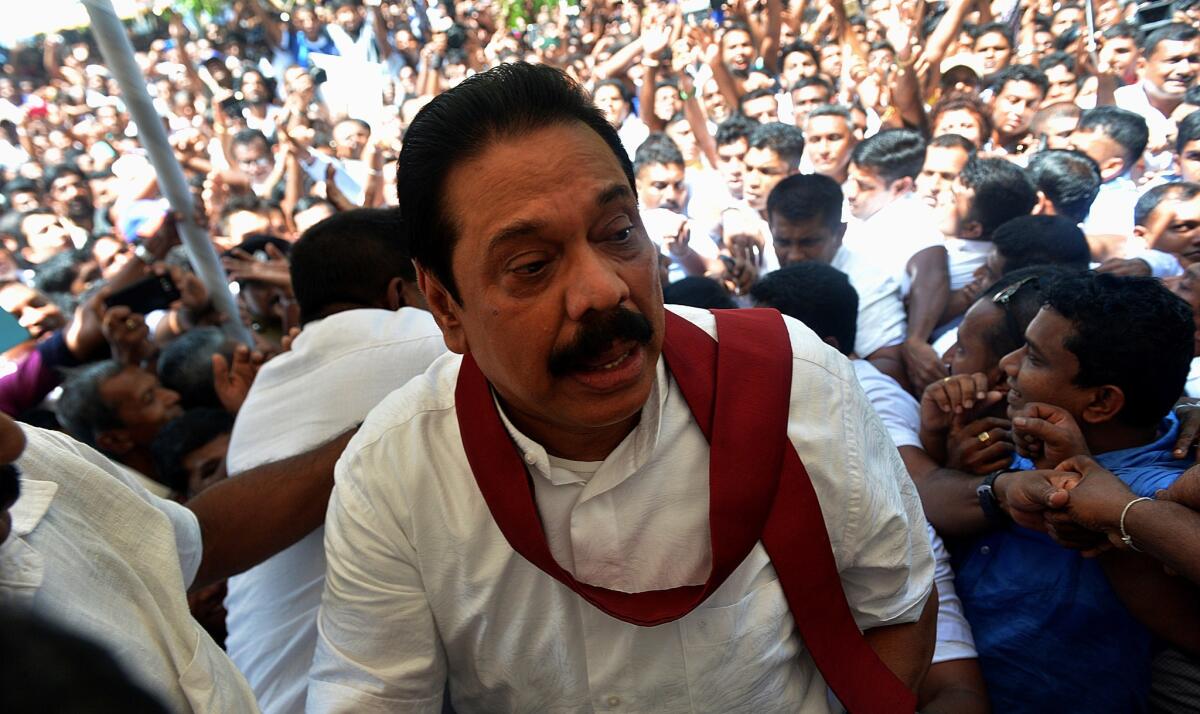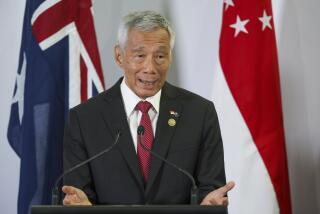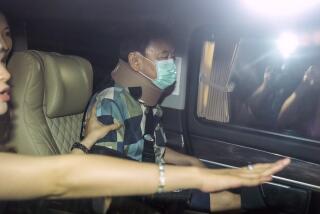Sri Lanka’s ex-strongman leader announces he’ll run for parliament

Sri Lanka’s former president, Mahinda Rajapakse, attends a rally where he announced that he will lead an opposition faction at forthcoming general elections, months after being defeated at presidential polls following a decade in power.
Less than six months after being voted out of office, former Sri Lankan President Mahinda Rajapaksa announced Wednesday that he intends to run in parliamentary elections in August.
The comeback bid by the former strongman, who is accused of corruption and war crimes, signaled a challenge to a new government that has promised sweeping, internationally backed reforms.
In a speech to cheering supporters at his residence in the seaside southern town of Tangalle, Rajapaksa said he was reentering politics at the demand of the people.
“I don’t have the right to reject your requests, so for the sake of our country, we will contest the upcoming general election,” he said.
Rajapaksa, who surprised many in this South Asian island nation by stepping aside peacefully following his election defeat in January, is believed to want the prime minister’s post, which would belong to the party that wins a legislative majority in the Aug. 17 vote.
President Maithripala Sirisena, a former Rajapaksa ally, won the January election by promising to end corruption and has taken steps to reconcile with the Tamil minority that suffered many of the worst abuses when the civil war ended in 2009.
The United Nations delayed until September the release of a long-awaited report on alleged civil war atrocities after the Obama administration and other allies argued that Sirisena should be given time to implement his agenda. An initial U.N. report in 2011 said as many as 40,000 civilians were killed in the final months of the war, when the Sri Lankan army crushed a three-decade fight for an ethnic homeland by Tamil Tiger rebels.
Sirisena, who has resisted an international inquiry but taken tentative steps toward addressing wartime abuses, has not said whether he would allow Rajapaksa to run as part of their Sri Lanka Freedom Party, raising the prospect that the former president would form a new political bloc.
But Rajapaksa retains support among Sri Lanka’s Sinhalese ethnic majority, and some analysts believe Sirisena, who is also Sinhalese, faces pressure not to split the party, which is credited with ending the war.
“Sirisena’s dilemma is powerful,” said Alan Keenan, an analyst with the nonprofit International Crisis Group, adding that if he does grant Rajapaksa a nomination it could be seen as “a betrayal” of the agenda that propelled Sirisena to office and improved Sri Lanka’s international standing.
Nominations are due to be finalized by July 13.
“The fate of January’s electoral ‘revolution’ – and the possibility of political progress it brought with it – could hang in the balance,” Keenan said.
Special correspondent Mushtaq reported from Colombo and Times staff writer Bengali from Hyderabad, India.
More to Read
Start your day right
Sign up for Essential California for news, features and recommendations from the L.A. Times and beyond in your inbox six days a week.
You may occasionally receive promotional content from the Los Angeles Times.







